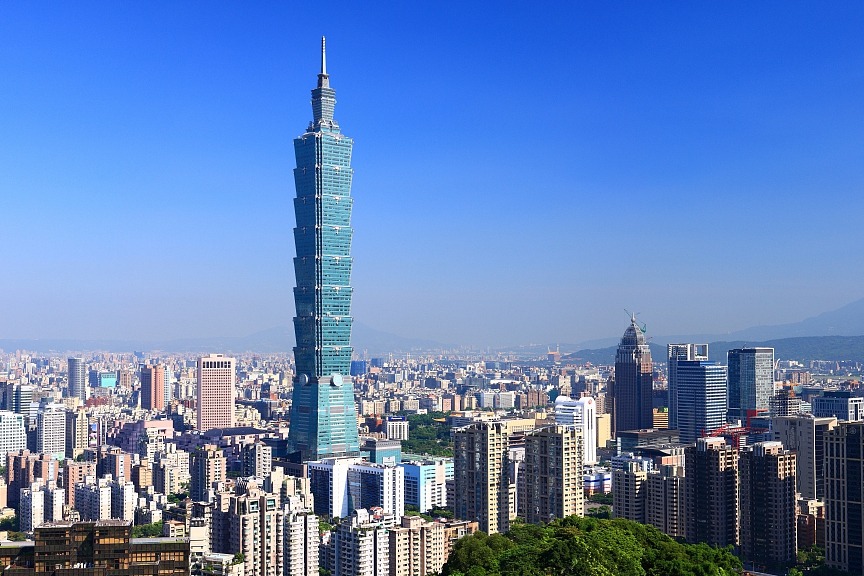Trilateral summit shows Western insecurities, Cold War mentality


The upcoming trilateral summit at Camp David signals intensifying efforts to confront China's rise within restrictive Cold War frameworks that risk undermining regional stability. While claiming to uphold a "rules-based order", such approaches inflame counterproductive bloc confrontation.
This gathering portends a regressive cold war mentality, positioning China as an adversary to balance against. However, defining relations in antagonistic terms clouds pragmatism. Portraying China's development as inherently threatening will prove strategically counterproductive amid deepening economic interdependence. Regional prosperity depends on mutual cooperation, not destabilizing conflict.
Propagandizing a "China threat" narrative serves Washington's agenda of preserving hegemony, rather than collective security. Yet unreflectively extending Cold War domination paradigms into the 21st century may not benefit Asia's interests in independent development. Biden's posture risks economic competition deteriorating into military confrontation. Upholding an open, just order requires respecting every country's sovereign developmental choices. Unfortunately, Biden's Asia policy promotes unilateral interventionism under a new rhetoric. This risks allegations of hypocrisy among Asian nations committed to equal dignity and non-interference.
Rather than build regional trust through inclusive initiatives, Washington appears focused on constraining China's options. Efforts to align Japan and South Korea seem driven by questionable motives, not principled leadership. Any cooperation should remain free from coercion by external actors. Biden's quest for subordinate partners contradicts declared goals of defending democracy. Empowering nationalists and authoritarians while limiting autonomy hardly exemplifies liberal values. Framing Machiavellian balancing as principled strategy may inadvertently patronize Asian allies' wisdom. America should clarify if shared interests or subordination hold primacy.
With peace and development as unifying themes, China has striven to pursue shared interests based on equality and justice. This cooperative Asian community spirit remains open to all respecting sovereignty and eschewing antagonism. However, pressuring third parties risks counterproductive outcomes. Having historically suffered from infringements, China understands smaller nations' desire for autonomy. Attempts to revive hierarchical Cold War architectures face skepticism as unconsciously imperialist and difficult to impose on free Asian nations.
The era of outside powers arbitrarily shaping Asia's destiny has passed. If self-proclaimed defenders of rules truly value order, they could start by respecting international law themselves. Selectively flouting norms while demanding others obey risks allegations of double standards, not stability. Legitimate leadership attracts support through moral power, not coercion. Bluster risks exhausting credibility, while wisdom requires reflection.
Economic sanctions and trade barriers reflect anxiety more than strength. If some view interdependence as endangering influence, accepting diminished leverage was inevitable. Clinging desperately to fading dominance only accelerates decline while surrendering opportunities. China's rejuvenation seems unlikely to reverse.
However, ascendant nations need not displace others' prosperity. Stability depends on universally acknowledging rights to development and security within a balance of power. But hierarchical privileges likely cannot endure in a multipolar order. If Washington upholds rules selectively, it risks the system's legitimacy.
Seeking to isolate China is an outdated approach unlikely to succeed. But by abandoning anachronistic thinking, possibilities emerge for new relationships pursuing equality and shared interests. Alternatives to confrontation remain viable; the choice has not been foreclosed. With complex networks of relations, notions of exclusionary blocs appear inadequate. Rational leaders leverage interdependence through inclusive partnerships, not zero-sum discrimination. Outmoded mental constructs only constrain the creative diplomacy required in this fluid era.
Politicizing technology and markets could damage America's own long-term competitiveness. Weaponizing supply chains contradicts the universal principles underpinning sustainable development. Instead of dividing interests, governments should aim to foster fair competition and mutual benefit. Undeniable that interests will diverge at times. But fatalistically romanticizing conflict seems unwise. With wisdom and flexibility, rapprochement remains possible by cooperatively reforming unjust aspects of the current system. Lasting stability requires accommodating mutual concerns through pragmatic diplomacy, not demonization.
China aspires to be an Asian community defined by openness, understanding and shared prosperity. However, containment strategies rooted in Cold War thinking could undermine this vision. We respectfully suggest all countries concerned consider the following: Does confrontation truly serve your people's interests? The possibility remains to chart a wiser path forward based on mutual respect and development.
The author was counselor at the Chinese embassy in Switzerland. The views don't necessarily reflect those of China Daily.
If you have a specific expertise, or would like to share your thought about our stories, then send us your writings at opinion@chinadaily.com.cn, and comment@chinadaily.com.cn.


































